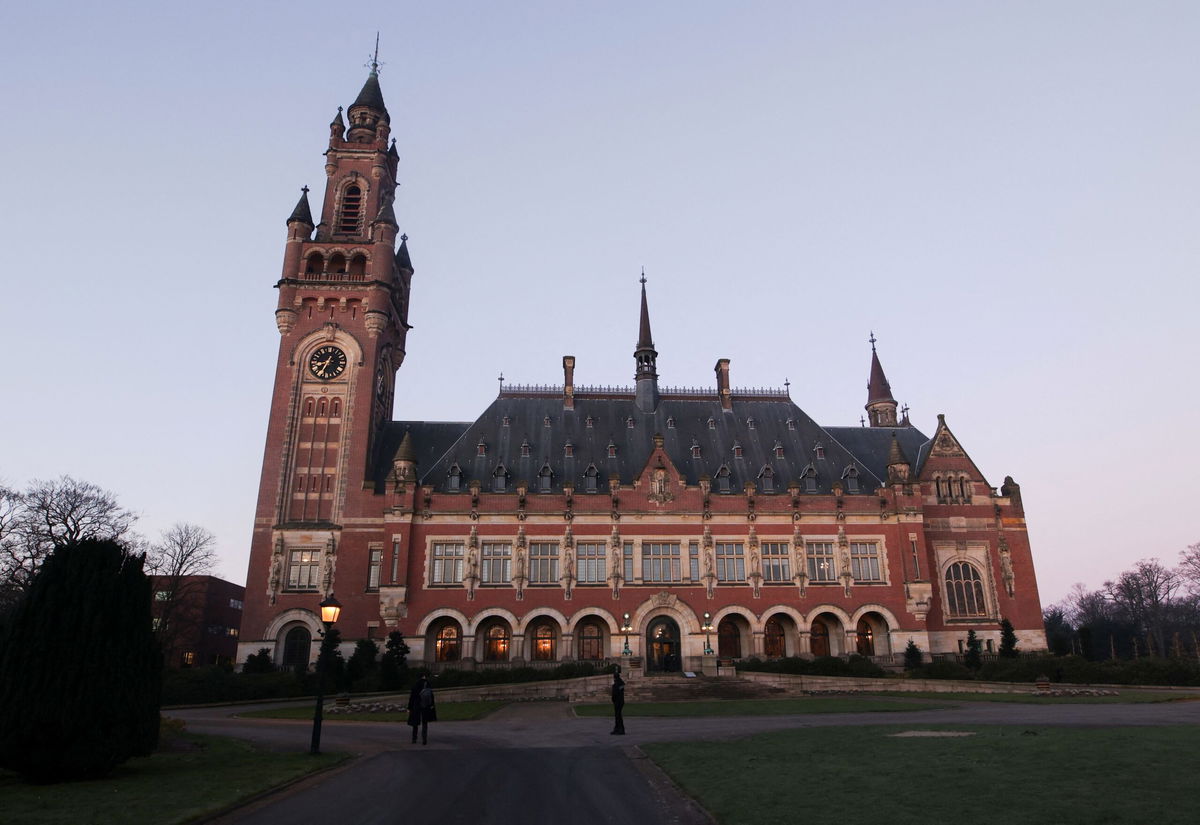‘Our people are here to stay:’ World Court hears arguments over Israeli occupation of Palestinian-claimed land

Originally Published: 19 FEB 24 07:10 ET Updated: 19 FEB 24 09:25 ET By David Shortell, CNN
(CNN) — The International Court of Justice began hearing historic oral arguments Monday over the Israeli occupation of territory claimed by Palestinians, thrusting the decades-old debate before a panel of international judges as the region remains locked in an unprecedented war.
Fifty-two countries will participate in arguments at The Hague over the six-day hearing – more than any other case heard by the court in its history.
The case stems from a 2022 request for an advisory opinion by the UN General Assembly. The 15 judges on the court will be asked to consider, as the General Assembly wrote, “the legal consequences arising from the ongoing violation by Israel of the right of the Palestinian people to self-determination, from its prolonged occupation, settlement and annexation of the Palestinian territory occupied since 1967.”
The court, established after World War II as a way for countries to resolve disputes without conflict, will likely take months to issue a ruling. The ICJ opinion will be advisory, not binding.
Monday’s case is separate from the proceedings held in January over an accusation from South Africa that Israel was committing genocide in its war against Hamas following the October 7 attacks.
That case saw an overwhelming majority of the court order Israel to prevent genocide against Palestinians in Gaza, while stopping short of calling for Israel to suspend its military campaign, as South Africa had requested. At the time, Israel had already indicated it would not accept the ICJ’s ruling, with Prime Minister Benjamin Netanyahu’s office writing on X that “nobody will stop us – not The Hague, not the axis of evil and not anybody else.”
Monday’s case concerning the West Bank began with remarks from Palestinian Authority Foreign Minister Riyad al-Maliki.
“Successive Israeli governments have given the Palestinian people only three options: displacement, subjugation or death,” al-Maliki said. “But our people are here to stay, they have a right to live in freedom and dignity in their ancestral land. They will not forsake their rights.”
Representatives from the various countries participating in the case will deliver their remarks starting Tuesday. Israel is not scheduled to speak but has made a written submission.
Israel captured the West Bank, East Jerusalem and Gaza in the 1967 Six-Day War. It later unilaterally annexed East Jerusalem and withdrew its troops and settlers from Gaza, though it has for years exerted control on the enclave through a near-total blockade.
Under the Oslo Accords peace agreement, the West Bank was separated into three distinct areas with control split between locations by Israel and the Palestinian Authority. Israel today has full administrative and security control over 60% of the West Bank area while the PA has nominal control over Palestinian population centers.
There are an estimated 700,000 Israeli settlers illegally living in the West Bank.
All Israeli settlements in the occupied West Bank are considered illegal under international law and by much of the international community. Israel disputes that, distinguishing settlements it has authorized from those it has not.
The-CNN-Wire
™ & © 2024 Cable News Network, Inc., a Warner Bros. Discovery Company. All rights reserved.